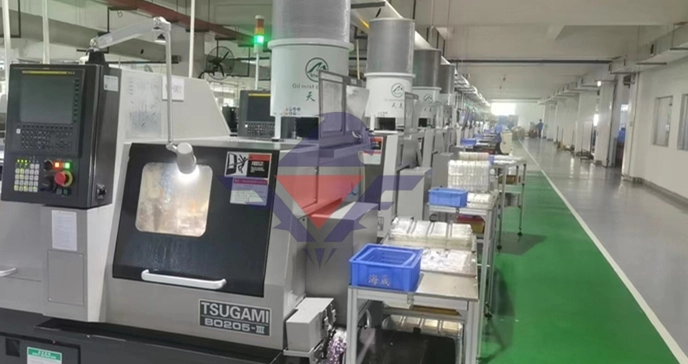
# Swiss Machine Shop: Precision Engineering Excellence
## The Art of Swiss Machining
Swiss machine shops represent the pinnacle of precision manufacturing, combining cutting-edge technology with decades of expertise. These specialized facilities operate Swiss-type lathes, which revolutionized the machining industry with their unique sliding headstock design. This innovation allows for exceptional precision when working with small, complex parts that require tight tolerances.
The Swiss machining process originated in Switzerland’s watchmaking industry during the late 19th century, where the demand for miniature, high-precision components drove technological advancement. Today, Swiss machine shops serve diverse industries including medical, aerospace, electronics, and defense.
## Why Choose a Swiss Machine Shop?
Modern Swiss machine shops offer several distinct advantages:
– Unmatched precision for small, complex parts
– Ability to maintain tight tolerances (±0.0001″ or better)
– Reduced material waste through efficient machining
– Capability to machine long, slender parts without deflection
– Simultaneous multi-axis operations for complex geometries
The unique design of Swiss machines allows the workpiece to be supported close to the cutting tool, minimizing vibration and deflection – a critical factor when working with delicate materials or intricate designs.
## Industries Served by Swiss Machining
Swiss machine shops have become indispensable to several high-tech industries:
### Medical Device Manufacturing
The medical industry relies heavily on Swiss machining for components like:
– Surgical instruments
– Implantable devices
– Dental components
– Diagnostic equipment parts
### Aerospace and Defense
Critical aerospace components benefit from Swiss machining’s precision:
– Fuel system components
– Avionics housings
– Guidance system parts
– Connectors and fittings
### Electronics and Telecommunications
Swiss machining produces:
– Connector pins
– Sensor components
– RF shielding parts
– Miniature electronic housings
## The Swiss Machining Process
The Swiss machining process differs significantly from conventional turning operations:
1. The workpiece is fed through a guide bushing, providing support very close to the cutting tool
2. The headstock moves while the tool remains stationary (opposite of conventional lathes)
3. Multiple tools can operate simultaneously on different axes
4. Live tooling capabilities allow milling, drilling, and other secondary operations
This unique approach enables Swiss machines to produce parts with exceptional surface finishes and dimensional accuracy, often eliminating the need for secondary operations.
## Materials Machined in Swiss Shops
Swiss machine shops work with a wide range of materials, including:
– Stainless steels (303, 304, 316, 17-4PH)
– Titanium alloys
– Aluminum (2024, 6061, 7075)
– Brass and copper alloys
– Plastics (PEEK, Delrin, Ultem)
– Exotic alloys (Inconel, Hastelloy)
The ability to machine these materials to precise specifications makes Swiss machining ideal for critical applications where material performance is as important as dimensional accuracy.
## Quality Assurance in Swiss Machining
Reputable Swiss machine shops implement rigorous quality control measures:
– First-article inspection protocols
– Statistical process control (SPC)
– In-process inspection
– CMM (Coordinate Measuring Machine) verification
– Surface finish analysis
– Material certification
Many shops maintain ISO 9001 or AS9100 certifications, with medical component manufacturers often achieving ISO 13485 certification for medical devices.
Keyword: Swiss Machine Shop
## The Future of Swiss Machining
Swiss machining continues to evolve with technological advancements:
– Integration of automation and robotics for lights-out manufacturing
– Advanced tooling materials and coatings for improved performance
– Smart machine monitoring and predictive maintenance
– Increased connectivity for Industry 4.0 applications
– Hybrid machines combining additive and subtractive manufacturing
As industries demand ever-smaller, more complex components with tighter tolerances, Swiss machine shops will remain at the forefront of precision manufacturing, continuing their legacy of engineering excellence that began in the watchmaking workshops of Switzerland over a century ago.